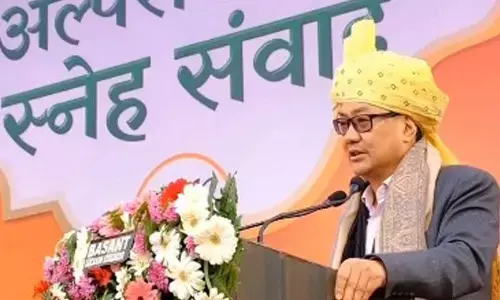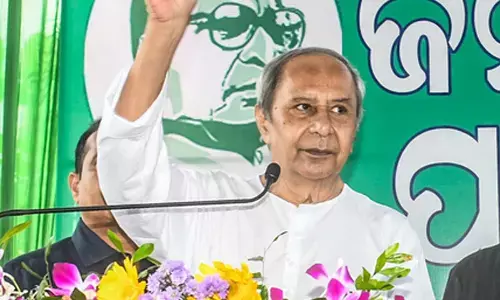Egypt at crossroads

Saudis fear that if the Brotherhood wins the ‘freedom’ war, it will pose serious problems for the conservative Arab country which has put a lid on the aspirations of its citizens for reforms
How to get Egypt back on track is the question that is haunting the authorities in that country and its allies in the Arab and Western world. After hundreds of deaths in clashes between supporters of deposed President Mohammed Morsi and government forces, since he was ousted from power by the military ostensibly to save Egypt from chaos, the Middle East’s most populous and literate nation has been descending into an abyss by the day.
Morsi is still in detention as are dozens of his close aides, and their supporters have been fighting street battles demanding reinstatement of their leader, the first democratically elected Muslim Brotherhood head of State. They claim that he was unjustly removed by the military to rule the country, notwithstanding his poor governance, pandering to Brotherhood dogma and not initiating enough measures to boost a sagging economy.
The issue, when Morsi was ousted on July 3, was his misrule and inability to take the population of different denominations along with him. A month later, the raison d’être has not changed much for the military-dominated government but is faced with daily clashes between supporters and opponents of Morsi and the use of force by the Army to quell riots.
Cairo’s Tahrir Square, the epicenter of revolution that saw the end of the 30-year rule of Hosni Mubarak in February 2011, might have been emptied of protesters and their tents by Army patrols, but elsewhere in the capital city as well as in other towns and cities, which are Brotherhood strongholds, continued resistance to military rule has worsened the situation. Every day seems to be a Black Friday as deaths on both sides keep escalating with the US and Europe calling for a peaceful resolution of the conflict.
There are neither signs nor hopes of an end to the stand-off between the Army and protesters. Nor, are there any attempts to convene a meeting of all the sides involved in precipitating the crisis. As the mayhem continues, the world is watching helplessly, unable to do anything but fearing that Egypt may go Syria way as far as civil unrest is concerned. Worse, terrorist outfits like Al Qaeda may enter the fray and hijack the movement to add a new dimension to the current troubles.
If that is the fear of the West, particularly the US which had aided Cairo heavily during the Mubarak era to keep fundamentalists like Muslim Brotherhood at bay, the Army-loaded government is on the same path after the recent bloody clashes, allegedly instigated by Brotherhood backers. Egypt's Army chief, General Abdul Fattah al-Sisi, and his aides are thinking of banning the 80-year-old Brotherhood to check the spread of unrest and the movement’s influence among the youth. But the Army rulers are also wary of a backlash. Should they take such decision, the security forces should also be prepared for crackdowns during which more violence is not ruled out.
Nevertheless, such a move has the strong backing of Saudi Arabia which has been supporting the Egyptian government’s actions against the Brotherhood. It has even offered aid in case the West halts it over crackdown on protesters who dub themselves freedom fighters. The munificent gesture is not without reason: Saudis fear that if the Brotherhood wins the ‘freedom’ war, it will pose serious problems for the conservative Arab country which has put a lid on the aspirations of its citizens for reforms. One way to stop the Brotherhood movement in its tracks is to side with the Egyptian military and proscribe the fundamentalists who have given political colour to their ideologies to stake claim to power in last year’s elections.
Brotherhood’s strength lies in being a political party with considerable following. Under the present Emergency rule, the government can ban it but it can’t do it permanently under constitutional provisions in future unless it is proved as a terrorist organization and a threat to national security. Interestingly, the military is on that job. In a PR exercise, the State-run Arabic language TV stations have started displaying a new logo in the corner of the screen, “Egypt fighting terrorism” in red, black and white, the three colours of the nation’s flag. It might have been aimed at the West and others who are criticizing the military authorities for trying to ruthlessly put down the huge protests. But the message the ruling brass wants to convey is clear: The rallies are not pro-democracy but taken out by Muslim Brotherhood members whose intentions are not so democratic.
Who is buying such propaganda is unknown. But if the Army wants to paint the protests as solely the handiwork of disgruntled elements with Brotherhood support, it is mistaken. For, they have been growing in strength and there is no hope of their petering out. Instead, what the authorities should do is to go into the root causes of unrest and try to address them as early as possible.
The genesis of the present revolt goes back to 2011 when the Egyptians rebelled against the authoritarian regime of Hosni Mubarak. Their grievances, at that time and now, are more or less the same. Arab Spring dawned and faded away; the Revolution was rebooted after Morsi’s election and it was back to Tahrir Square (one).
In the interregnum, more people have lost their lives, but the ordinary people’s lives have not changed. High unemployment, food inflation, a growing young population aspiring for better opportunities, and stunted economic growth had all contributed to the first uprising in modern Egypt. When their hopes were dashed a year later, the people were again on the streets demanding a better deal.
Whoever can give it will be truly the king of the masses. In the present dispensation, neither the Army nor any political party can deliver people’s expectations. Egypt needs a new order. In what form, nobody knows. But suppression is no answer or solution. Whatever has to be done, it should be on three fronts: political, economic and social. A three-pronged strategy may be a tall order. But when all these issues are precipitated over decades what filters down is chaos. There lies a lesson for others too.














